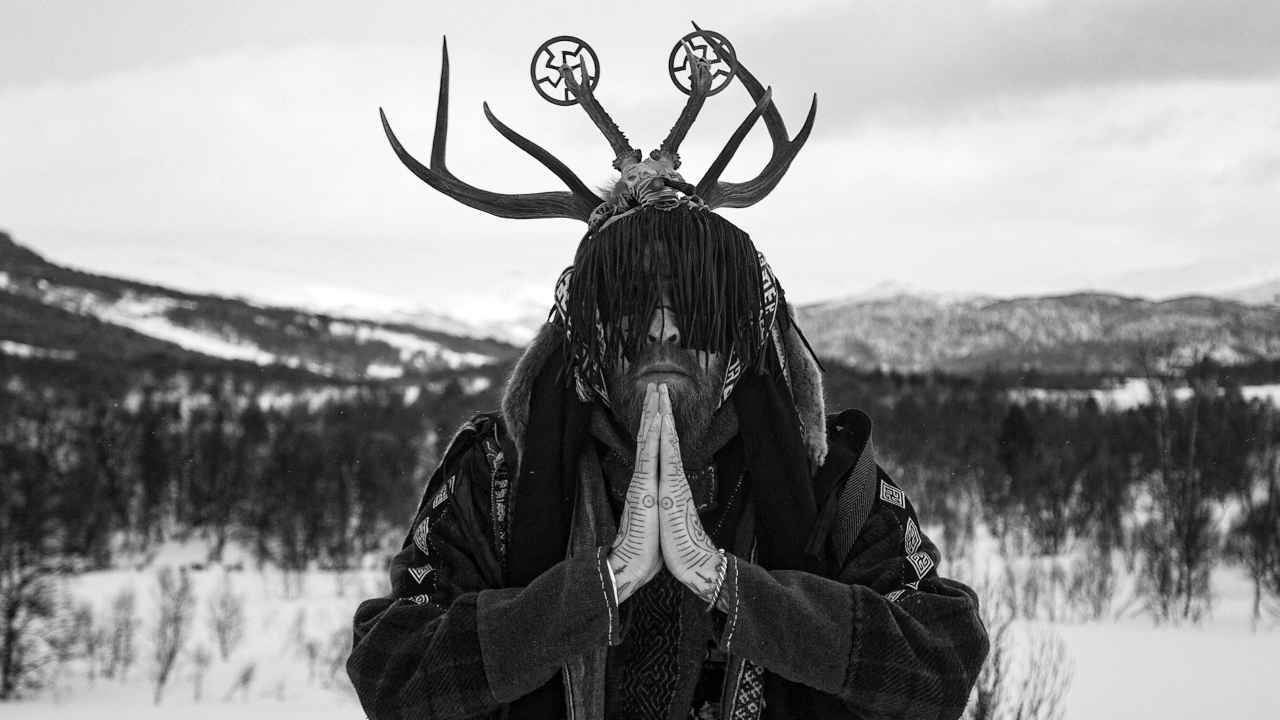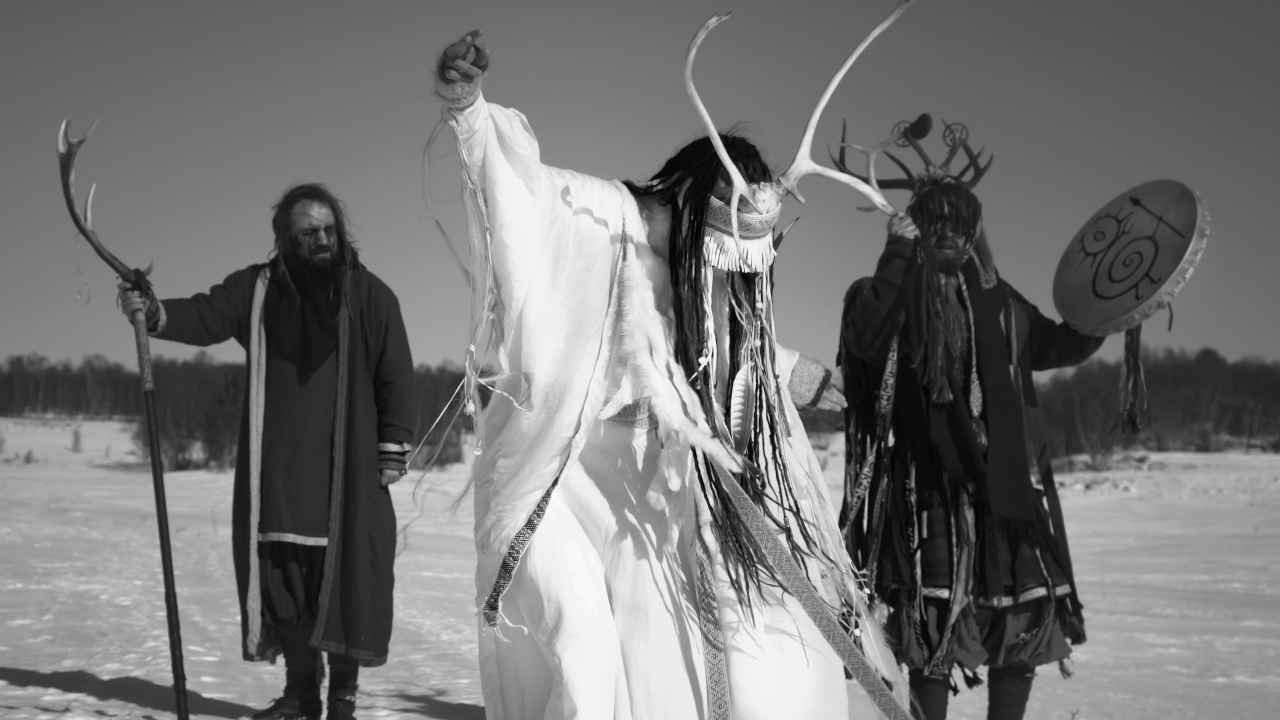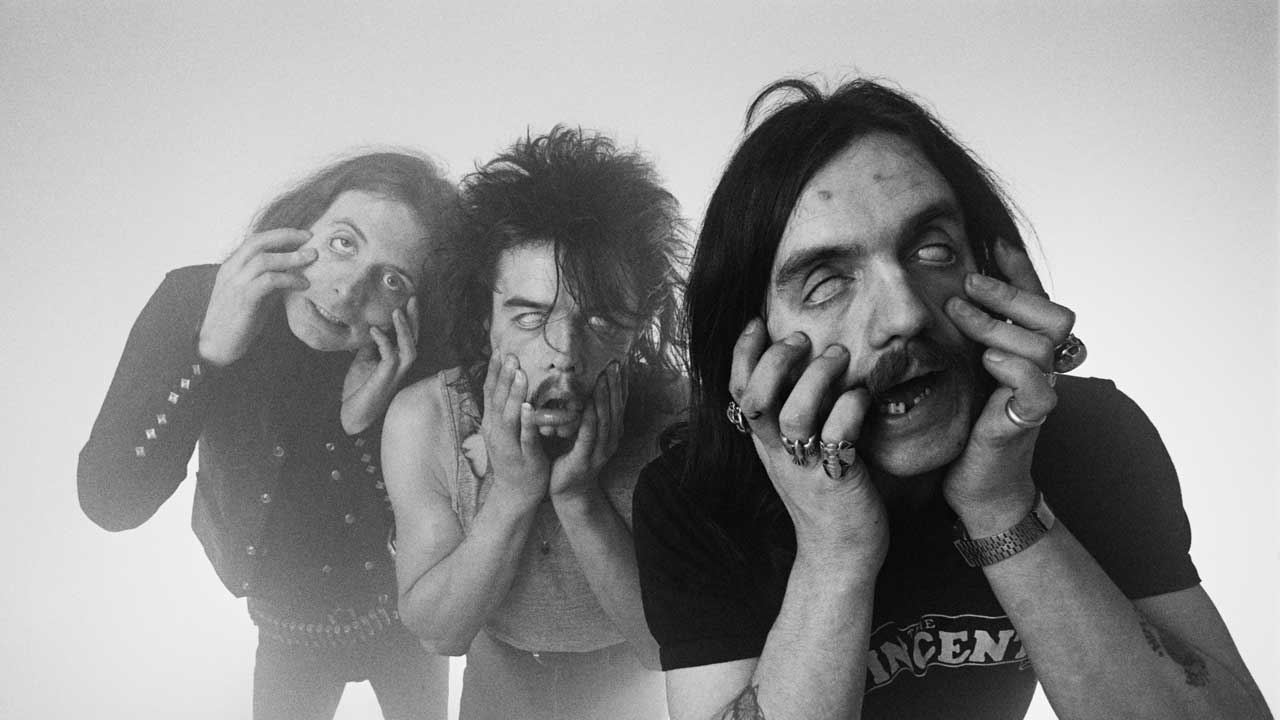Meet the ex-Christian pagan folk vocalist on a mission to help metal fans discover their inner shaman
From Bible studies to mummified warriors, Nordic tattoos and shamanism – inside the unique world of Heilung’s vocalist Kai Uwe Faust

Select the newsletters you’d like to receive. Then, add your email to sign up.
You are now subscribed
Your newsletter sign-up was successful
Want to add more newsletters?

Every Friday
Louder
Louder’s weekly newsletter is jam-packed with the team’s personal highlights from the last seven days, including features, breaking news, reviews and tons of juicy exclusives from the world of alternative music.

Every Friday
Classic Rock
The Classic Rock newsletter is an essential read for the discerning rock fan. Every week we bring you the news, reviews and the very best features and interviews from our extensive archive. Written by rock fans for rock fans.

Every Friday
Metal Hammer
For the last four decades Metal Hammer has been the world’s greatest metal magazine. Created by metalheads for metalheads, ‘Hammer takes you behind the scenes, closer to the action, and nearer to the bands that you love the most.

Every Friday
Prog
The Prog newsletter brings you the very best of Prog Magazine and our website, every Friday. We'll deliver you the very latest news from the Prog universe, informative features and archive material from Prog’s impressive vault.
“Traditional black metal fans always hate me for saying this, but not all Christians suck,” jokes Kai Uwe Faust, the shamanic vocalist of Heilung. “The core of it all is loving your neighbour.”
Kai is an animalistic, mysterious creature covered in fur and bones, whose grunts and chants bring Heilung’s pagan folk metal to life. Seeing him go wild onstage in a trance-like state is impressive – and slightly intimidating. Talking to him is a different experience, though; he’s all smiles and jokes while talking about being a tattoo artist, lyricist and musician, but also remembering a time when his belief system and worldviews were the exact opposite of the free-spirited life he’s leading now.
He grew up in a conservative, Bible-abiding evangelical family in rural Western Germany. Early on, he learned the importance of rituals such as prayers and church visits, but also strict rules such as not watching TV.
“When I was a kid, I used to spend endless amounts of time in the huge, ancient forests of my home,” he recalls during a video chat from his home in Copenhagen, and immediately drifts into one of his big passions – history. “There are stone circles and caves there that date back to the Stone Age. The area I grew up in was one of the last to convert to Christianity in Germany back in the 8th and 9th century, and it’s close to the so-called ‘Limes’, which was a long cultural border between the Magna Germania and the Roman Empire. I learned about this history of my ancestors and my home at a very young age.”
Kai remembers being a curious child, full of questions and with a thirst for knowledge – a disposition that slowly removed him from the teachings of the Bible and the church, but not from his family. “Of course, there are those people that turn their backs on their own children, but that was never the case in my family. They always tried to give me answers and be open. There were a lot of discussions, but at the end of the day, this is my blood. They love me, even though I’m different. And that’s what it is about; dear uncle Jesus also hung out more with whores and former soldiers than decent people,” he laughs.
Even though Kai doesn’t agree with the evangelical teachings anymore, his upbringing was formative. His first memories of music are related to church, where he learned basic musical knowledge, especially regarding choral singing. And since there was no TV in his home, he read a lot of books that ignited a passion that remains today.

“There was one book I studied before I even knew what letters were and that I still own,” he says. “It’s about the last unsolved mysteries of our world, including the Scythian mummies. Those people were tattooed, consumed cannabis and were brave warriors. I was fascinated by that and the art of the Iron Age for as long as I can remember, and started drawing such things myself very early.”
Sign up below to get the latest from Metal Hammer, plus exclusive special offers, direct to your inbox!
This interest in ancient history and its art would eventually lead Kai to becoming one of the top artists in the field of traditional Nordic tattooing, but his path wasn’t always clear. After finishing school, he started working in construction, which was considered a safe industry after German reunification, when new building projects were popping up left, right and centre. At this point, he wasn’t just distant from the shamanic scene – he thought it was outright nuts.
“I used to have a girlfriend that was totally into shamanism, healing stones and runes. Back then, I was all about black metal, Satan and darkness, and thought that these guys with their drums and incense sticks were totally crazy,” he recalls with amusement. “But I had an illness that no medical practitioner could help me with, so I thought I might as well give shamanism a try.
“I went to one of their sessions and was provided with a recipe for a 21-day cure. I could see my body healing during this time. It didn’t make sense, I couldn’t explain it, but it happened right before my eyes. I was shocked that these humming, drumming weirdos were capable of such a thing. It drastically changed my worldview and sparked an interest that I have to this day.”
The incident ushered in a shift. In his early 20s, Kai quit his construction job, got a higher education and started tattooing professionally. He was taken under the wing of German tattoo artist and book illustrator Astrid Köpfler, who not only taught him a lot artistically, but managed to get him a guest spot at Kunsten på Kroppen, the world’s oldest Nordic tattoo studio, in Copenhagen. That guest spot turned into full-time employment and, in 2015, he became the owner.
“I used to dream of getting tattooed in the studio I now own,” he says, eyes sparkling. “When I got the offer to move to Denmark and work there, I just couldn’t believe it. It’s like being some random guitarist and getting asked to join Slayer. I immediately packed my bags and was on my way.”
Living in Northern Europe, and being able to visit the historic sites he’d only ever read about, deepened Kai’s interest in Nordic history and mythology. He had started writing when he got into shamanism, to document the fleeting images and impressions he experienced in the state of trance. From these factual accounts, he quickly moved on to poems and short stories. The track Keltentrauer, about a clash between the Celts and the Romans, on new Heilung album Drif, is one of his earliest poems and is about 20 years old.
In the beginning, Kai only wrote in German, and after improving his language skills through travelling, he added English. But it was only when he moved to Denmark and had close contact with the Scandinavian languages that he started working intensely with the Gothic, Old Norse and Old High German source material we can hear in many of Heilung’s songs. “The country itself is a great teacher and source of strength and wisdom,” he says.
Although Kai was aware of the power of music and singing thanks to his shamanic experiences, he never planned on performing in public. When he joined the scene in the 90s, it was very small and secretive, as spiritual practices were a lot less mainstream than they are today, and many people in Germany were wary of people trying to revive Germanic traditions and spiritualism. It wasn’t until 2014, when he recorded some poems with producer and now-bandmate Christopher Juul, that the seed for Heilung was planted.
“Christopher is an absolute musical genius and quickly was quite bored with just recording me talking, so we started adding background noises, then he asked me if I could sing a bit. When I did, his eyes started to sparkle and he basically locked me in the recording room until I’d let everything out that was somehow usable,” he remembers with a giggle.
Christopher’s partner, Maria Franz, felt so inspired that she spontaneously joined as a singer as well – and Heilung was born. Kai first met the couple in the early 2000s, as all of them were active in Viking reenactment markets across Scandinavia. “There was a lot of music and alcohol involved,” he says about his faint, earliest memories of them.
Just as Heilung are not a typical band – they call their style of music ‘amplified history’, referring to the integration of the ancient and the modern – Kai Uwe Faust is not a regular vocalist or musician. In accordance with shamanic practice, he sees himself as a medium or a vessel for other people, to help them find fulfilment. “When I go onstage, I empty myself and invite helping forces to work through me,” he explains. “That means that Kai as a person, as an ego, has to step back and make room, which is why there are shows that I can barely remember. Physically, I only work through muscle memory then.”
Five years after their first gig, and with their third studio album, Drif, just released, Heilung are still seeing their ambition manifest. Their name is the German word for ‘healing’, and Kai says many fans have reported improvements to their mental and physical health after listening to a Heilung album or attending a show.
“We know what happens when you confront people with certain rhythms. There’s research proving that it alters your brain waves – and we use that knowledge,” he explains. “We came to change and expand people’s consciousness, to help them find their happiness, their strength and wholeness – and as long as we’re called Heilung, that will be our mission. The fact that it’s become so big just shows that there are a lot of people out there right now that need this reconnection to themselves and their history.”
As for his own family, things look a little different: Kai’s sister has seen Heilung perform but his parents haven’t. “That’s not going to happen because it’s just too far removed and collides with their own worldview. And that’s OK,” he shrugs. “I think they’re just happy that their highly unhappy, aggressive child turned into a person that manages to get by.”
Heilung’s new album Drif is out now
